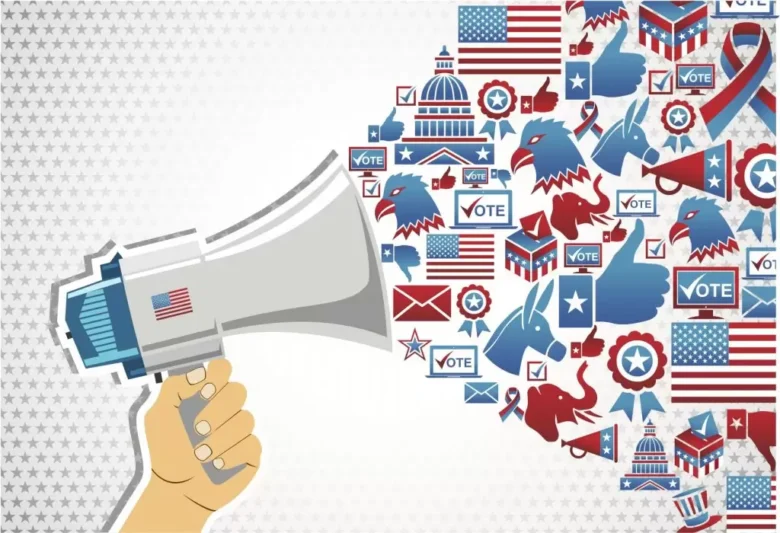Many people want to take an active part in creating a better place to live for themselves, and their families. Even though many governments around the world don’t really want to work with the citizens, some of them realized it’s important to integrate ordinary people into the decision-making process. Are you interested in politics or government? Is it something you would consider studying at university?
What impact does technology have on our current system of governance and citizenship? How can we ensure that citizens are empowered through access to information, decision-making, and participation?
Despite being a topic surrounded by much hype and controversy, the relationship between policymakers and citizens has never been stronger. The public demand better outcomes from their politicians, and they want to be actively involved in decisions that affect them, their communities, and their country.
Governments around the world are under pressure to improve service delivery and accountability and are also faced with unprecedented demands from citizens who are demanding more rights and responsibilities. Some countries have already implemented it, and you can see a great example at https://imperiallegal.com/media/articles/benefits-st-kitts-nevis-citizenship/.
Citizenship governance is defined as the practices and principles governing the relationship between citizens and government. In today’s rapidly evolving global society, modern technologies have dramatically altered the way citizens interact with each other and engage with policymakers.

Source: goguardian.com
As the world becomes more connected through social media platforms such as Facebook and Twitter, governments are beginning to question their effectiveness in fostering citizen participation. As citizens interact with new technologies, they gain access to information and knowledge that was previously inaccessible to them. This creates a shift from passive consumers to participatory citizens who demand improved government services and accountability.
If you want to learn more about this, stay with us, because we have many interesting thoughts to share:
1. Technology is a great tool for citizen engagement
Citizens can now easily access information about their government via social media platforms and specialized websites. These platforms have become a place where people share ideas, opinions, and concerns directly with the government or local authorities.
Through these channels, citizens can hold their governments accountable for their actions and provide feedback on what they would like to see improved.
2. Citizen engagement has increased due to the use of technology
When citizens have access to information they are able to make informed decisions. People are empowered when they feel connected to their government and know how to get involved.
By using modern technologies, citizens are able to participate in local politics, so they can create better conditions for living. Through the internet, people can learn about candidates running for office and vote without leaving home.
3. Governments are utilizing technology to engage with citizens

Source: provenoptics.com
In order to reach out to citizens, many governments are using social media platforms and governmental websites to interact with them. Social media sites allow governments to communicate with citizens in real-time and keep them updated on current events.
Governments are also using online tools to gather feedback from people. Many countries around the world have created e-participation portals where citizens can submit suggestions and give feedback on official documents. Additionally, they can claim some benefits, like vouchers or gift cards for their involvement.
4. Online voting has been increasing
Several countries around the world have implemented online voting systems. These systems allow voters to cast votes from anywhere at any time. The United States is one of those countries that has adopted online voting.
In 2016, the state of Oregon began offering online voting for primary elections. However, the system was not fully implemented until 2018. As of 2017, only two states had online voter registration, and only four states offered online voter registration for general elections.
5. Citizens are becoming more aware of political issues
People are beginning to realize that they can take action if they want to influence the way politicians act. Many people are learning about political issues through social media. Through social media, people are able to find news articles and videos related to their interests.
6. Political parties are using technology to connect to voters

Source: peachyessay.com
Political parties are increasingly using social media sites to connect with voters. Parties often use Facebook pages to create awareness about themselves, gain supporters, and inform voters about upcoming election dates.
7. Citizens are engaging in local politics
Citizens are able to learn about candidates running for public office and choose the ones that best represent their views. Through social media, they are able to meet their elected officials and discuss their concerns.
8. Empowering transparency
Transparency is an increasing trend in many countries around the world. In recent years, governments have increased efforts to make public reports and data accessible to the general public. The internet has allowed citizens to access these documents without having to pay exorbitant fees for subscriptions. Through blogs, tweets, and other online platforms, politicians can communicate with voters and keep them informed on what is going on in their communities.
Conclusion
The rise of digital technologies has fundamentally transformed the way we live, work and play. Social media platforms have enabled us to connect and share with people around the world, giving birth to social networks. Citizen engagement has become increasingly accessible and citizen participation has never been greater. In fact, the majority of people have now experienced online activism, whether political or not, as they’ve engaged with issues close to their hearts in ways they may have never done before.
This is quite beneficial for all those people who want to get involved in decision-making, with one nice and clear goal – to make the world a better place for their children.
For the first time in centuries, we have an option and right to take a part in creating politics and changing the bad laws. We all must use that advantage to encourage changes, so we can create a better world for all of us, in every possible sector.

Source: weforum.org
So, don’t think twice. Try to be an active part of the changes. One day, your kids will be thankful you knew how to use technology to make the world a better place for them.




